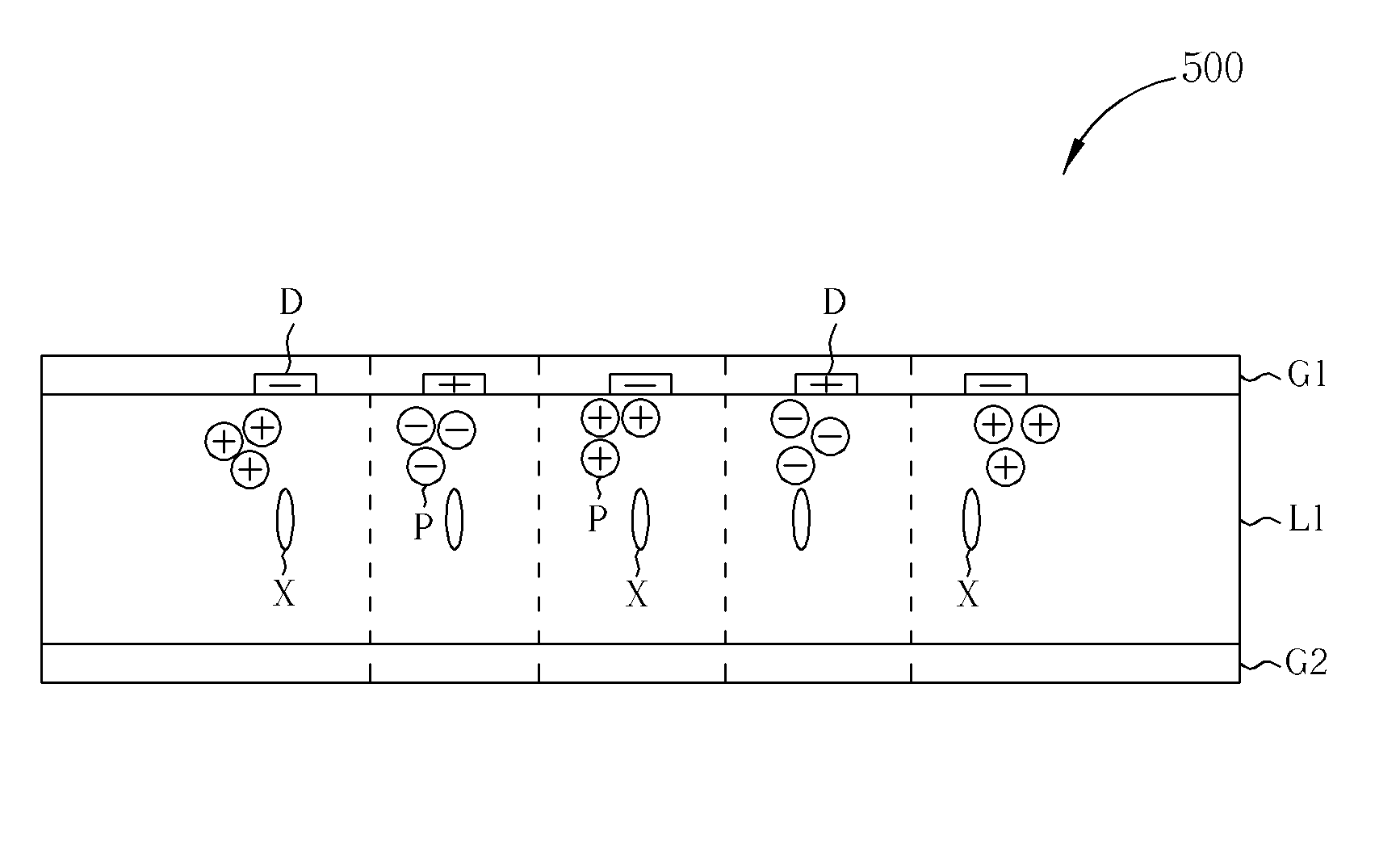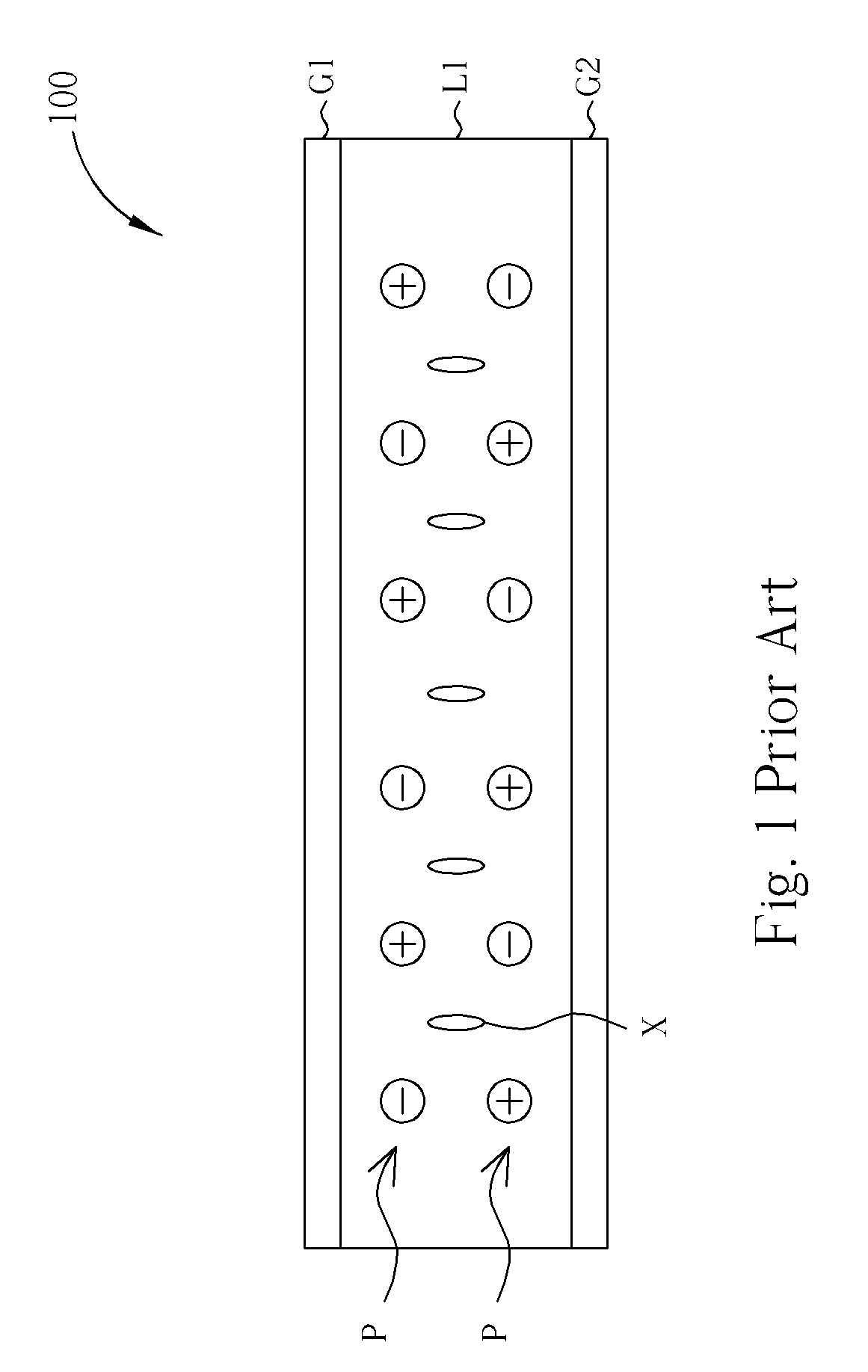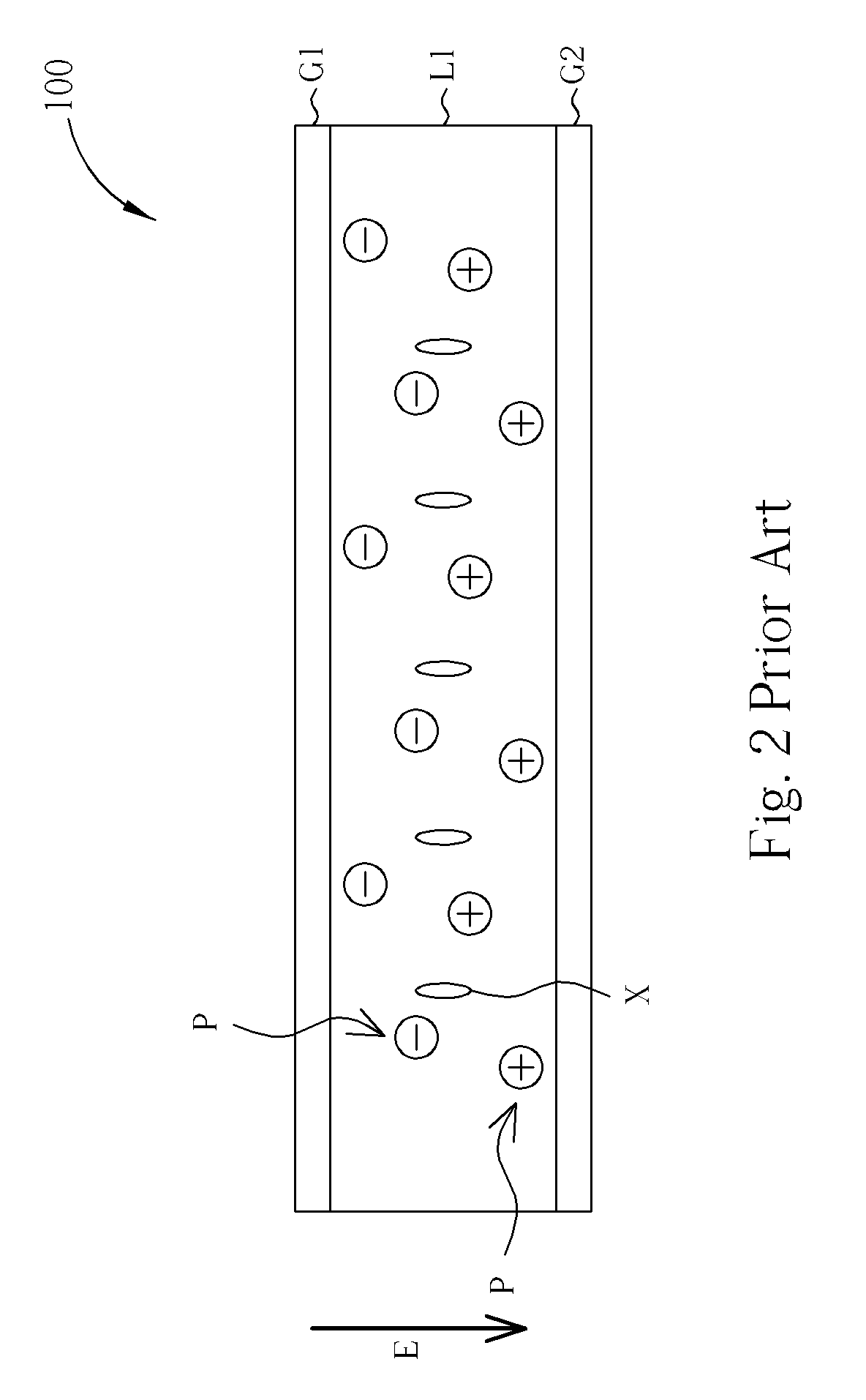Driving Method For Reducing Image Sticking
a technology of driving method and image sticking, applied in the direction of instruments, computing, electric digital data processing, etc., can solve problems such as image sticking problems, and achieve the effects of reducing image sticking, reducing image sticking, and reducing image sticking
- Summary
- Abstract
- Description
- Claims
- Application Information
AI Technical Summary
Benefits of technology
Problems solved by technology
Method used
Image
Examples
Embodiment Construction
[0025]FIGS. 6 and 7 are diagrams illustrating the driving method to improve image sticking for a LCD to display images. As shown in FIG. 6, because a net DC electric field, which is induced by the imperfectly symmetric data voltages Vd, and the specific direction of the liquid crystal molecules X, which is determined by the voltage difference between the data voltage Vd and the common voltage Vcom, the impurities P move three-dimensionally to cross several data lines D in the liquid crystal layer L1. Finally the positive-polarized impurities P accumulate in a local region in the LC layer L1, and the negative-polarized impurities P accumulate in another local region in the LC layer L1. Please refer to FIG. 7, the present invention applies high voltages on the data lines D to avoid the impurity particles P pass through the data lines D as shown in FIG. 6. The high voltages applied on the data lines D trap the impurities P to prevent the impurities P from crossing several data lines D....
PUM
 Login to View More
Login to View More Abstract
Description
Claims
Application Information
 Login to View More
Login to View More - R&D
- Intellectual Property
- Life Sciences
- Materials
- Tech Scout
- Unparalleled Data Quality
- Higher Quality Content
- 60% Fewer Hallucinations
Browse by: Latest US Patents, China's latest patents, Technical Efficacy Thesaurus, Application Domain, Technology Topic, Popular Technical Reports.
© 2025 PatSnap. All rights reserved.Legal|Privacy policy|Modern Slavery Act Transparency Statement|Sitemap|About US| Contact US: help@patsnap.com



